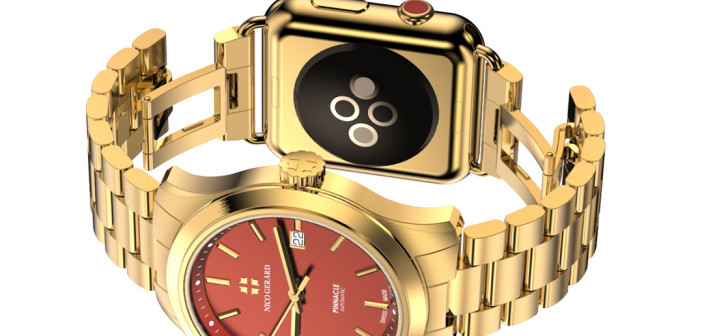By Jean-Francois Rubon, director of innovation and strategy, Gemalto
Wearable technology is definitely one of the most talked about topics in technology at the moment. But when someone says wearable technology, what do you immediately think of? More often than not, it’s a smart watch or smart device, like a fitness tracker. In reality, there is so much more to the wearables market, crossing many different types of markets, from the environment to gaming.
Mobile health
One of the main industries that has begun embracing wearable technology is the rapidly evolving m-health market. The need for healthcare is global, which means its focus is all encompassing with endless possibilities; this can only mean good news for both businesses and consumers.
As it stands, we only see doctors when we’re sick, which when you think about it, is a bit late. If we were to use wearable devices, our medical information could be transmitted to the cloud, where doctors (human or digital,) could have instant access to the records required. This would allow them to take appropriate action in real time, to the point where they can even predict issues.
The first thing that comes to a lot of consumers’ minds, however, is the issue of data security and privacy. It’s not just the device itself that has to be secure, but also the data used during transmission and any details stored in the cloud; the last way people want to feel is that their data is at risk. Almost every health and security company is aware of these fears and it’s likely we’ll see national regulation authorities intervening in this field to absolutely ensure security is guaranteed.
Data security
And this brings us to the main crux of the point for users; how secure are these devices, whether it’s being used for healthcare or to simply tell the time?
Some of the most talked about entries into the wearables market recently are contactless payments solutions, pioneered by companies such as Apple and Samsung.
These solutions, like Apple Pay, have a huge focus on security. If we look specifically at the US who are still using swipe credit cards, a technology abandoned in Europe 10 years ago, then the likes of Apple and Samsung are way ahead, by positioning themselves as actually more secure than a traditional credit or debit card. This was done in order to address any potential fears customers would have around using new payment technologies. This type of emphasis on security will only encourage more customers to trust the technology and adopt the solutions more quickly.
The high level of protection of personal data can be achieved thanks to a secure chip, known as the secure element, which is included in the design of the wearable, but it really acts like a small safe, keeping all your personal details and passwords safe.
Adding convenience
In addition to security, in order for wearable devices to actually take off, convenience needs to be front of mind. For example it would be ideal to have our wearable devices completely autonomous from our smartphones, directly using the cellular networks. This will require a new generation of SIM cards and a mobile subscription. But will all users want to buy their wearable devices from a mobile operator’s shop? Flexibility is also important regarding consumers choice of mobile operator.
It’s a very exciting time in the wearables market. It hasn’t matured yet, and there are still a lot of potential customers up for grabs. Companies are trying to meet this need by being as innovative as possible, whilst also keeping security at the forefront of their minds. As the wearable market grows it will also become more diverse, but the trust that security brings, as well as a flexible connectivity, are imperative to ensuring that the market reaches its full potential. Some companies will succeed…some will not. It’s up to consumers and businesses to watch and see what happens next.
Gemalto is a world leader in digital security, with 2014 annual revenues of Euro 2.5 billion and bluechip customers in over 180 countries.





